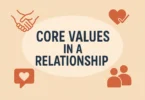Relationships are exciting, fulfilling, and deeply rewarding—but they also require awareness, self-growth, and a willingness to address issues before they become dealbreakers. While most people recognize obvious red flags like dishonesty or infidelity, many subtle warning signs often go unnoticed. These overlooked red flags can slowly erode the foundation of a relationship, leading to disappointment, resentment, or even heartbreak.
If you want to build a lasting and healthy partnership, it’s crucial to recognize and address these issues early on. Below are five major relationship red flags that are often ignored but can significantly impact long-term compatibility.
Red Flags #1 – Lack of Communication and Emotional Distance
Communication is the backbone of any healthy relationship. Without open, honest conversations, misunderstandings, resentment, and emotional disconnection can take root. Many couples overlook the early signs of communication breakdown, dismissing them as minor issues, only to find themselves struggling with deep emotional distance later.
Here are three critical aspects of this red flags and how they can negatively impact your love life:
1. Signs Your Partner Avoids Deep Conversations
One of the earliest indicators of communication issues is when one or both partners shy away from meaningful discussions. While casual conversations about daily life are normal, a strong relationship also requires deeper emotional exchanges. Here are some warning signs that your partner may be avoiding essential communication:
- They change the subject or become defensive when serious topics arise.
- They dismiss your feelings, saying things like, “You’re overreacting” or “It’s not a big deal.”
- They avoid discussing future plans, leaving you uncertain about where the relationship is headed.
- They shut down emotionally, offering only short, unengaged responses.
When these behaviors become patterns, they create a relationship dynamic where one partner feels unheard and undervalued. Over time, emotional intimacy erodes, making it difficult to maintain a deep, loving connection.
2. How Emotional Distance Leads to Relationship Breakdown
Emotional distance doesn’t happen overnight—it’s a gradual process that often stems from unresolved conflicts, unspoken expectations, or personal struggles. A partner who once seemed attentive and engaged may slowly become detached, leading to feelings of loneliness even when you’re physically together.
Some ways emotional distance manifests in a relationship include:
- Lack of quality time: Your partner spends less time with you, preferring distractions like work, friends, or social media.
- Reduced affection: Physical touch, loving words, and gestures of care become infrequent.
- Indifference: Your partner stops showing interest in your day, your feelings, or your well-being.
- Growing resentment: The absence of honest conversations leads to bottled-up frustrations that eventually explode into arguments or passive-aggressive behavior.
Left unchecked, emotional distance can push couples apart, making it difficult to reconnect. Many people don’t realize the relationship is in trouble until the emotional bond has weakened significantly, making it harder to repair.
3. The Role of Trust and Vulnerability in Healthy Relationships
Healthy communication is rooted in trust and vulnerability—the ability to open up without fear of judgment, criticism, or rejection. When one or both partners struggle with emotional intimacy, they may put up walls to protect themselves, inadvertently creating distance in the relationship.
To rebuild or strengthen communication and emotional connection, consider these key strategies:
- Encourage open dialogue: Create a safe space where both partners feel comfortable expressing their thoughts and emotions without fear of judgment.
- Practice active listening: Instead of thinking about your response, focus on truly understanding your partner’s words, emotions, and perspective.
- Address problems early: Don’t ignore concerns or assume they will go away on their own. Discuss issues as they arise to prevent them from escalating.
- Make time for emotional bonding: Engage in activities that foster connection, such as deep conversations, shared hobbies, or quality time without distractions.
- Be vulnerable: Allow yourself to express your feelings honestly, even if it feels uncomfortable. Vulnerability strengthens intimacy and deepens trust.
Recognizing and addressing communication red flags early can prevent emotional distance from turning into permanent detachment. If you notice these signs in your relationship, it’s essential to take proactive steps toward improving communication before it leads to irreparable damage.
Red Flags #2 – Controlling or Manipulative Behavior
A healthy relationship is built on mutual trust, respect, and the freedom for both partners to be themselves. However, when one person begins exerting control or manipulating their partner’s thoughts, feelings, or actions, the relationship becomes toxic. Unfortunately, many people fail to recognize controlling behavior early on, as it can often be disguised as concern, love, or protection. Over time, this behavior can erode self-esteem, create dependency, and lead to emotional distress.
Below, we explore the key signs of controlling or manipulative behavior, how it affects a relationship, and what you can do if you find yourself in this situation.
1. Subtle Signs of Controlling Behavior That Often Go Unnoticed
Controlling behavior doesn’t always appear in obvious ways. It can be subtle, creeping into the relationship in ways that seem caring or protective at first. Some signs include:
- Excessive jealousy and possessiveness – They constantly question where you are, who you’re with, or why you need to spend time with others.
- Monitoring your actions – They want access to your phone, emails, or social media accounts under the pretense of “trust.”
- Isolating you from loved ones – They discourage you from spending time with friends and family, making you emotionally dependent on them.
- Making decisions for you – They dictate what you should wear, eat, or do, under the guise of “knowing what’s best for you.”
- Using guilt and blame – They make you feel guilty for wanting independence or pursuing your own interests.
At first, these behaviors may seem like signs of deep affection, but they gradually strip away your autonomy and create an imbalanced relationship where one partner holds power over the other.
2. Manipulative Tactics That Can Emotionally Drain You
Manipulation is a form of emotional abuse that can make you question your own reality, choices, and self-worth. Controlling partners often use the following tactics to get their way:
- Gaslighting – They twist facts, deny things they said or did, and make you doubt your own memories, making you feel like you’re “crazy” or overly sensitive.
- Love bombing and withdrawal – They overwhelm you with love, gifts, and attention, only to withdraw their affection when you don’t comply with their wishes.
- Playing the victim – They turn every situation around to make themselves look like the victim, making you feel responsible for their emotions and behavior.
- Threats and ultimatums – They use fear or guilt to control you, saying things like, “If you leave me, I’ll never find happiness” or “If you really loved me, you’d do this.”
Over time, these tactics wear you down emotionally, making it harder to stand up for yourself or recognize the toxicity of the relationship.
3. The Emotional and Psychological Impact of a Controlling Relationship
Being in a controlling relationship takes a severe toll on a person’s mental and emotional well-being. It can lead to:
- Low self-esteem – Constant criticism and manipulation can make you feel like you’re never good enough.
- Anxiety and fear – You may feel like you’re walking on eggshells, afraid of upsetting your partner.
- Loss of independence – You may find yourself making choices based on what your partner wants rather than what’s best for you.
- Depression – The feeling of being trapped in an unhealthy relationship can lead to emotional exhaustion and sadness.
If left unchecked, controlling behavior can escalate into more severe emotional and even physical abuse, making it crucial to recognize and address it early.
4. How to Handle a Controlling or Manipulative Partner
If you suspect you’re in a controlling relationship, here are some steps you can take to regain control over your life:
- Acknowledge the behavior – Recognizing the red flags is the first step toward change. Don’t justify or downplay controlling tendencies.
- Set clear boundaries – Let your partner know what behaviors are unacceptable and stand firm on your personal rights and independence.
- Seek support – Talk to trusted friends, family members, or a professional therapist who can provide guidance and reassurance.
- Regain your independence – Reconnect with loved ones, pursue your hobbies, and make decisions based on your own needs and desires.
- Consider leaving if necessary – If your partner refuses to change or their behavior becomes abusive, prioritizing your well-being and safety is essential.
A loving, respectful relationship should empower you, not make you feel trapped. If your partner’s behavior makes you feel controlled, manipulated, or constantly anxious, it’s a serious red flags that shouldn’t be ignored. Recognizing these warning signs early can help you take the necessary steps to protect yourself and build a relationship based on mutual trust and respect.
Red Flags #3 – Consistent Disrespect and Dismissiveness
Respect is the foundation of any healthy relationship. It fosters emotional safety, trust, and deep connection. However, when one partner consistently disrespects or dismisses the other’s feelings, opinions, or boundaries, it creates an unhealthy dynamic that can slowly erode the relationship.
Disrespect can take many forms—some obvious and others more subtle. It might appear in the way your partner speaks to you, how they react to your emotions, or how they prioritize your needs. Over time, persistent disrespect can lead to resentment, low self-esteem, and an overall feeling of being unappreciated.
In this section, we’ll explore the signs of consistent disrespect and dismissiveness, how it impacts relationships, and what you can do about it.
1. Subtle and Overt Signs of Disrespect in a Relationship
Disrespect doesn’t always come in the form of outright insults or yelling. Sometimes, it manifests in small, everyday interactions that might seem insignificant at first but add up over time. Here are some common ways a partner may show disrespect:
Subtle Signs of Disrespect
- Ignoring or dismissing your feelings – When you express emotions, concerns, or thoughts, they brush them off or make you feel like you’re overreacting.
- Interrupting or talking over you – They frequently cut you off in conversations, making you feel unheard and insignificant.
- Making jokes at your expense – They constantly tease you in ways that make you uncomfortable, even after you’ve expressed that it bothers you.
- Eye-rolling or sighing when you speak – Their body language communicates annoyance or condescension, even if they don’t say anything outright.
- Dismissing your achievements or efforts – They downplay your accomplishments, making you feel like your hard work isn’t worth celebrating.
More Obvious Signs of Disrespect
- Insulting or belittling you – They call you names, mock your intelligence, or make hurtful comments about your appearance, abilities, or dreams.
- Ignoring your boundaries – If you’ve expressed discomfort with certain behaviors, and they continue doing them, it’s a clear sign of disrespect.
- Public humiliation – They criticize or embarrass you in front of others, making you feel small and powerless.
- Being dismissive of your time and commitments – They show up late, cancel plans last minute, or expect you to drop everything for them without considering your schedule.
Whether subtle or overt, consistent disrespect damages the emotional bond between partners and creates an environment where one person feels devalued and unheard.
2. How Dismissiveness Erodes a Relationship
Dismissiveness, a form of disrespect, happens when a partner repeatedly ignores, belittles, or invalidates the other’s experiences and emotions. Over time, it can lead to serious relationship problems, such as:
- Emotional disconnection – When one partner constantly dismisses the other’s feelings, the emotional intimacy weakens, making the relationship feel distant and cold.
- Loss of self-worth – Being treated as if your thoughts and emotions don’t matter can chip away at your self-confidence and make you doubt yourself.
- Increased resentment – Constantly feeling unheard or invalidated leads to frustration and bitterness, which can eventually result in explosive arguments or emotional withdrawal.
- Breakdown of communication – If one partner feels like they won’t be heard or respected, they may stop trying to communicate altogether, leading to a complete lack of understanding.
A relationship should be a safe space where both partners feel valued, appreciated, and respected. When dismissiveness becomes the norm, it creates a toxic cycle that pushes both individuals further apart.
3. Why People Stay in Disrespectful Relationships
Despite the pain that comes with constant disrespect, many people find it hard to leave such relationships. Some common reasons include:
- Hope that things will change – Many people believe their partner’s behavior is temporary or that love will eventually fix the issues.
- Emotional dependence – They feel deeply attached to their partner and worry about being alone.
- Fear of confrontation – Addressing the issue might seem intimidating, especially if the partner is dismissive or defensive.
- Low self-esteem – If someone has been disrespected for a long time, they may start believing they don’t deserve better.
- Past experiences or upbringing – Some individuals grew up in environments where disrespectful behavior was normalized, making it harder for them to recognize the toxicity.
Recognizing these factors can help individuals understand why they tolerate disrespect and empower them to take steps toward healthier relationships.
4. How to Address Disrespect and Dismissiveness in a Relationship
If you’ve noticed a pattern of disrespect or dismissiveness in your relationship, you don’t have to accept it as the norm. Here are steps you can take to address the issue:
a) Communicate Clearly and Assertively
Let your partner know how their behavior is affecting you. Use “I” statements to express your feelings, such as:
- “I feel hurt when my feelings are dismissed because it makes me feel like I don’t matter.”
- “I need to feel respected in this relationship, and that includes being listened to when I speak.”
b) Set Firm Boundaries
Make it clear what behaviors are unacceptable. For example:
- “I won’t tolerate name-calling or belittling, and if it happens, I will remove myself from the conversation.”
- “If you continue to ignore my feelings, I will need to reconsider our relationship.”
c) Observe Their Response
A respectful partner will acknowledge their mistakes and try to improve. However, if they:
- Ignore your concerns
- Mock your feelings further
- Blame you for “being too sensitive”
- Make no effort to change
Then it may be time to reevaluate the relationship.
d) Seek Support
If you’re struggling to navigate the situation alone, talking to a trusted friend, family member, or therapist can provide valuable guidance and perspective.
e) Know When to Walk Away
A relationship should uplift you, not make you feel small or unheard. If disrespect and dismissiveness continue despite your efforts, leaving may be the healthiest option.
Final Thoughts
Consistent disrespect and dismissiveness in a relationship are major red flags that should never be ignored. No one deserves to feel undervalued, unheard, or belittled by their partner. Healthy relationships are built on mutual respect, open communication, and emotional validation.
If you find yourself dealing with a partner who constantly dismisses your feelings, interrupts your thoughts, or makes you feel insignificant, it’s essential to take action. Whether it’s setting boundaries, seeking support, or choosing to walk away, prioritizing your emotional well-being is the most important step.
Remember: You deserve to be in a relationship where you are loved, respected, and appreciated. Never settle for anything less. 💙
Red Flags #4 – Lack of Effort and Unbalanced Emotional Investment
A healthy relationship thrives on mutual effort, where both partners contribute emotionally, physically, and mentally to the bond. However, when one person stops trying or invests significantly less than the other, the relationship becomes one-sided, leading to frustration, exhaustion, and eventual breakdown.
Lack of effort doesn’t always mean outright neglect—it can be subtle, like not initiating conversations, failing to show appreciation, or becoming emotionally distant. When love and care are no longer reciprocated, the relationship turns into a draining experience rather than a fulfilling one.
In this section, we’ll explore how lack of effort manifests in a relationship, the impact of unbalanced emotional investment, and what you can do if you notice this red flag.
1. Signs of Lack of Effort in a Relationship
Effort in a relationship is not just about grand gestures—it’s about the small, consistent actions that show love, respect, and commitment. A lack of effort can take many forms, including:
Emotional Neglect
- Your partner no longer asks how your day was or engages in meaningful conversations.
- They rarely express affection, either physically or verbally.
- You feel emotionally disconnected and unsupported.
One-Sided Initiation
- You’re always the one making plans, reaching out first, or keeping the relationship alive.
- They don’t initiate dates, meaningful discussions, or check-ins about your well-being.
- They respond to messages but never start a conversation themselves.
Absence of Appreciation
- Your efforts to make them happy go unnoticed or unappreciated.
- They take you for granted, expecting you to do things for them without acknowledgment.
- Compliments, gratitude, or small acts of kindness are missing from the relationship.
Avoiding Effort in Conflict Resolution
- They avoid difficult conversations and prefer to ignore problems instead of working through them.
- They dismiss your concerns with phrases like, “You’re overreacting” or “It’s not a big deal.”
- You always have to be the one apologizing or making amends after disagreements.
Neglecting Quality Time
- They prioritize hobbies, work, or social life over spending time with you.
- Even when you’re together, they seem distracted, disinterested, or preoccupied with their phone.
- Date nights and meaningful moments together become rare or nonexistent.
When one partner stops putting in the effort while the other continues to invest emotionally, it creates an unbalanced dynamic that leads to frustration and hurt.
2. The Emotional Toll of an Unbalanced Relationship
When a relationship lacks effort and becomes one-sided, the emotionally invested partner often experiences deep exhaustion and self-doubt. Here’s how an unbalanced emotional investment can affect you:
a) Feeling Unimportant or Unappreciated
If your partner isn’t making an effort to connect or show they care, it can make you feel like your presence in their life doesn’t matter. Love thrives on mutual appreciation, and when that disappears, resentment builds.
b) Emotional Burnout
Constantly trying to keep the relationship alive without receiving the same energy back can be draining. You may feel emotionally exhausted from carrying all the weight of maintaining the connection.
c) Increased Anxiety and Self-Doubt
When your partner doesn’t match your level of investment, you might start questioning yourself:
- “Am I not enough?”
- “Did I do something wrong?”
- “Why don’t they care as much as I do?”
This can lead to insecurity and decreased self-esteem over time.
d) Built-Up Resentment
If you’re always the one giving, while your partner takes, resentment can accumulate. Over time, you might begin to feel bitter or even withdrawn from the relationship.
e) Loss of Emotional Intimacy
Relationships thrive on mutual connection. When one person stops investing in deep conversations, shared experiences, and emotional support, intimacy starts to fade, making the relationship feel cold and distant.
If you find yourself constantly questioning why your partner isn’t trying, it may be time to reassess the relationship.
3. Why Some Partners Stop Making an Effort
Understanding why a partner is showing less effort can help you determine the best course of action. Here are some common reasons people become emotionally disengaged:
a) Comfort and Complacency
Some people stop making an effort because they assume the relationship is “secure” and no longer feel the need to put in extra work. While comfort is normal, complacency can be dangerous when it leads to neglect.
b) Emotional Withdrawal or Stress
Your partner may be dealing with external stressors—work pressure, personal struggles, or mental health issues—that make them emotionally unavailable. While temporary withdrawal is understandable, prolonged emotional neglect is a problem.
c) Taking the Relationship for Granted
When one partner assumes the other will always be there no matter what, they may stop making an effort, thinking, “They won’t leave anyway.”
d) Waning Interest or Commitment Issues
A hard truth to face is that sometimes, lack of effort signals a deeper issue: a fading interest in the relationship. If your partner is emotionally checked out, they may not be willing to put in the work anymore.
e) Unequal Prioritization
Some individuals prioritize work, hobbies, or friendships over their romantic relationship. While balance is important, a relationship should never feel like an afterthought.
Identifying the root cause of their lack of effort is crucial in deciding whether the relationship can be saved or if it’s time to move on.
4. How to Address Lack of Effort in a Relationship
If you notice this red flags in your relationship, here are some steps you can take:
a) Communicate Your Feelings Openly
Express how their lack of effort makes you feel. Use “I” statements instead of blaming:
- “I feel unappreciated when I’m always the one planning things.”
- “I miss how we used to prioritize spending time together.”
b) Set Clear Expectations and Boundaries
Define what effort means to you and what you need in a relationship. For example:
- “I need us to have at least one date night a week to stay connected.”
- “I can’t keep investing all my energy if I don’t feel the same in return.”
c) Observe Their Response
- If they acknowledge the issue and show willingness to change, that’s a positive sign.
- If they dismiss your feelings, continue making excuses, or put in minimal effort only temporarily, that’s a red flags.
d) Stop Overcompensating
If your partner isn’t making an effort, don’t try to make up for it by doing even more. Pull back and see if they step up—this will show whether they truly value the relationship.
e) Know When to Walk Away
If you’ve communicated, set boundaries, and nothing changes, it might be time to step back and ask yourself: Are you holding onto a relationship that’s no longer serving you? Love should be mutual, not one-sided.
Final Thoughts
Effort in a relationship is about consistency, appreciation, and emotional reciprocity. When one partner stops trying, while the other continues to invest, it creates an unhealthy imbalance that can leave you feeling exhausted and unfulfilled.
If you’re constantly the only one keeping the relationship alive, it’s time to reassess your worth and decide if the relationship is truly worth saving. Relationships should be a two-way street, not an uphill battle.
Remember: You deserve a partner who meets you halfway, values your efforts, and makes you feel loved, not one who makes you question your worth. 💙
Red Flag #5 – Ignoring Personal Boundaries and Emotional Needs
A healthy relationship thrives on mutual respect, open communication, and emotional security. When personal boundaries and emotional needs are consistently ignored, it can create an unhealthy power dynamic, leaving one partner feeling disrespected, unheard, or even trapped.
Boundaries are essential in any relationship because they define the limits of comfort, emotional well-being, and self-respect. Ignoring them—whether intentionally or unintentionally—can lead to resentment, emotional exhaustion, and, ultimately, the breakdown of the relationship.
In this section, we will explore how disregarding boundaries manifests in relationships, the emotional damage it causes, and what steps you can take to protect yourself.
1. How Ignoring Boundaries Manifests in Relationships
Boundaries in relationships are not about control or creating distance—they are about ensuring emotional safety and respect. When a partner refuses to acknowledge or respect these boundaries, it can show up in different ways, including:
A) Dismissing Your Feelings and Emotional Needs
- Your partner downplays or mocks your feelings when you express discomfort.
- They say things like “You’re overreacting” or “You’re too sensitive” instead of addressing your concerns.
- They ignore your emotional needs, such as seeking reassurance, quality time, or personal space.
B) Pressuring You Into Uncomfortable Situations
- They push you to do things you’re not comfortable with—whether socially, emotionally, or physically.
- You feel guilty for saying ‘no’ because they react with frustration or manipulation.
- They make you feel obligated to prioritize their needs over your own.
C) Invading Your Privacy
- Your partner checks your phone, social media, or personal belongings without permission.
- They demand access to things that make you uncomfortable, like your personal messages or bank accounts.
- They get angry or suspicious when you set reasonable boundaries around personal space.
D) Controlling Your Social Interactions
- They dictate who you can and cannot talk to, including friends and family.
- They get jealous or possessive when you spend time with others, even if they are close friends.
- They constantly make you feel guilty for wanting time apart from them.
E) Disregarding Your Need for Alone Time
- They make you feel guilty for needing time alone to recharge or focus on personal growth.
- They insist on always being together, dismissing your need for independence.
- They become clingy, demanding, or upset when you try to set time aside for yourself.
These behaviors may seem small at first, but over time, they create an unhealthy dynamic where one partner dominates the relationship, leaving the other feeling powerless.
2. The Emotional Toll of Ignored Boundaries
When personal boundaries are ignored in a relationship, it can lead to emotional exhaustion and a loss of self-identity. Here’s how it can affect your mental and emotional well-being:
A) Feeling Unheard and Unimportant
When a partner constantly disregards your boundaries, it sends the message that your feelings and needs do not matter. Over time, this can make you feel invisible and emotionally disconnected.
B) Growing Resentment
A lack of respect for personal boundaries often leads to built-up frustration and resentment. If your partner never acknowledges their behavior, you may start to feel bitter and emotionally distant.
C) Anxiety and Emotional Stress
Constantly walking on eggshells around your partner or worrying about their reaction to your boundaries can lead to anxiety, stress, and emotional burnout.
D) A Loss of Independence and Self-Worth
In extreme cases, ignoring personal boundaries can cause a loss of self-identity. You may start prioritizing your partner’s wants over your own, leading to a situation where you feel trapped in an emotionally draining relationship.
E) Increased Conflict and Tension
Without healthy boundaries, small disagreements can escalate into major conflicts, as one partner constantly feels unheard, disrespected, or emotionally exhausted.
3. Why Some People Disregard Boundaries
Understanding why a partner ignores your boundaries can help you determine if the relationship can be repaired or if it’s time to move on. Some common reasons include:
A) A Lack of Emotional Maturity
Some people struggle to understand that boundaries are necessary for a healthy relationship and assume that love means complete emotional or physical access at all times.
B) Controlling or Manipulative Behavior
Some individuals ignore boundaries as a way to assert control in the relationship. They may pressure you, guilt-trip you, or dismiss your concerns to get what they want.
C) Fear of Losing You
A partner with deep insecurities or abandonment issues may struggle with personal boundaries because they fear distance means disconnection.
D) Lack of Relationship Awareness
Some people genuinely don’t realize they’re crossing boundaries because they were never taught how to respect them. However, a willing and loving partner will make the effort to change when this issue is addressed.
If your partner repeatedly ignores your boundaries even after conversations about them, it may be a sign that they do not respect your emotional needs—a serious red flags.
4. How to Protect Your Boundaries and Emotional Well-Being
If you’re experiencing this red flag in your relationship, here are some steps to set and enforce your boundaries:
A) Identify and Communicate Your Boundaries Clearly
- Be specific about what is and isn’t acceptable for you.
- Use clear language like: “I need time to myself after work to unwind” or “I’m not comfortable with you looking through my phone.”
B) Observe How Your Partner Responds
- A supportive partner will acknowledge your needs and make an effort to respect them.
- A toxic partner will dismiss, challenge, or guilt-trip you into giving in.
C) Stand Firm in Your Boundaries
- If your partner keeps pushing, reaffirm your stance instead of backing down.
- Avoid justifying or over-explaining—your comfort and well-being matter.
D) Seek Outside Perspective
- If you’re unsure whether your boundaries are reasonable, talk to a trusted friend, family member, or therapist.
- Sometimes, an outsider’s perspective can help you recognize red flags more clearly.
E) Know When to Walk Away
- If your partner continuously ignores, disrespects, or dismisses your boundaries, this is a major sign of an unhealthy relationship.
- A person who truly cares about you will respect your limits without making you feel guilty.
Final Thoughts
Boundaries are essential for a happy, healthy relationship. When one partner repeatedly ignores them, it undermines trust, emotional security, and personal well-being.
A loving and respectful relationship involves two people who honor each other’s limits, communicate openly, and support each other’s emotional needs. If you find yourself constantly battling to have your boundaries respected, it may be time to reconsider whether this relationship is truly healthy for you.
Remember: You deserve a partner who respects your comfort, listens to your needs, and values your emotional well-being as much as their own. 💙
Conclusion
Recognizing red flags in a relationship isn’t about being overly critical or pessimistic—it’s about protecting your emotional well-being and ensuring you build a healthy, fulfilling partnership. The five overlooked red flags we discussed—lack of communication, dismissive attitudes toward your feelings, inconsistent behavior, avoiding accountability, and lack of mutual support—can slowly erode trust and connection over time.
If you notice these signs in your relationship, don’t ignore them. Have open and honest conversations with your partner, set boundaries, and assess whether the relationship is truly serving your happiness. Love should make you feel valued, respected, and secure, not constantly anxious or second-guessing yourself.
Ultimately, a strong relationship thrives on mutual effort, respect, and emotional safety. By being mindful of these often-overlooked red flags, you empower yourself to make informed decisions about your love life—decisions that lead to lasting, meaningful connections.








[…] 5 Overlooked Relationship Red Flags That Can Ruin Your Love Life […]